Croatian Cuisine II: A Book Cooked in Venezuela
July 14, 2019 - Croatia has a large diaspora community in South America. A new cookbook strengthens the links to their homeland.
The book Croatian cuisine II. A tasting of Croatian cuisine in Venezuela, is a publication of the Cultural Association of Croatian Ladies of Venezuela edited by Editemos, with the support of the Central State Office for Croats outside the Republic of Croatia.
With a prologue by the editor and author Miro Popic, the book brings together a selection of recipes published in a first edition, dating from 2008, together with a compilation of new traditional recipes that are still being prepared in Croatian homes on this side of the world.
All of them show the evolution that this gastronomy has reached in our country, fruit of the cultural and economic exchange that began two centuries ago with the arrival of the first Croatians in Venezuela and intensified from the European migrations promoted by the various historical facts that marked the Europe of the 20th century.
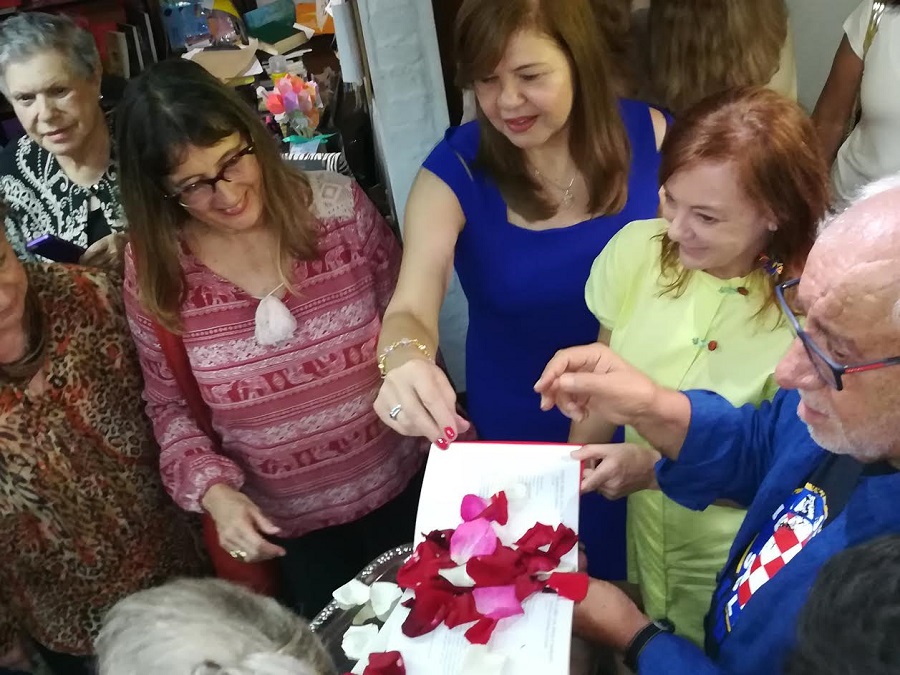
The publication is divided into two sections that reflect both the history and the geography of Croatia: Continental cuisine and Mediterranean cuisine, broken down into companions and entrances; and main and desserts each, in addition to useful information for the preparations.
The recipes are illustrated with full-color images of Croatian ingredients and dishes, selected and prepared especially for this volume, by members of the Croatian community who preserve the traditions inherited from their ancestors and portrayed by the lens of Efrén Hernández. photographer, architect and Director of Dulcear.com.
This book will contribute to keep alive the traditions and heritage of the Croatian diaspora in Venezuela and why not, Latin America as well.
Dobar Tek!
To learn more about the new book in Spanish, click here.
To get the latest news from the Croatian diaspora, follow the dedicated TCN section.
Meet Croatian American Annie Bosko – Singer, Songwriter and Entertainer!
Annie Bosko is one proud Croatian American singer, songwriter and entertainer paving her own road in the very competitive music business.
There's much to know about this very talented musician. Annie is a farmer's daughter from the Boskovich family in California known for Boskovich Farms produce. The National Federation of Croatian Americans was proud to choose Annie as one of our "40 Under 40" rising stars in 2019, from within our Croatian American community and she was a hands-down winner on the list of extraordinarily talented young Croatian Americans making their mark around the USA!
Rolling Stone magazine recognized Annie as the “artist to watch”, describing her as the "California girl next door with the country-pop delivery of Sheryl Crow." That's quite a compliment from one of the world's top music magazines. No stranger to exemplifying courage, the largest crowd Annie has performed in front was 300,000 people at Nashville's 4th of July celebration in 2015. She describes the performance as "being surreal but nothing she wasn't ready for after years of grinding onstage." Annie has experienced quite a few magical moments like when she shared the stage with Adele or belted out a duet with Andrea Bocelli. She enjoyed sharing the memory of the time when Bruce Springsteen sat in during one of her shows and paid her the compliment of telling her, “you rock” after the show. Annie has also opened for Blake Shelton, Martina McBride, Wyonna Judd, Dierks Bentley, Kid Rock and Pat Benatar.
Annie grew up the middle child of five children and showed interest in music at an early age. She was influenced by Patsy Cline, traditional country music and also, from the Beatles and the Beach Boys, thanks to her father. It was her mother that exposed her to pop female vocalists such as Whitney Houston and Celine Dion. It does appear that all these different music influences has created Annie’s unique style. She got her first professional music job with Disney at age 14 and moved to Nashville at age 19 to pursue her music and songwriting career. She was a contestant in American Idol and made it to the top 36.
Annie will candidly tell you it can be a roller coaster ride up and down in the music industry. She takes great pride in her songwriting and has written songs that have been recorded by Willie Nelson, Marie Osmond, Jessica Simpson and more. Annie believes her song “Fighter" best reflects her determined Croatian spirit and has made the greatest impact on fans.
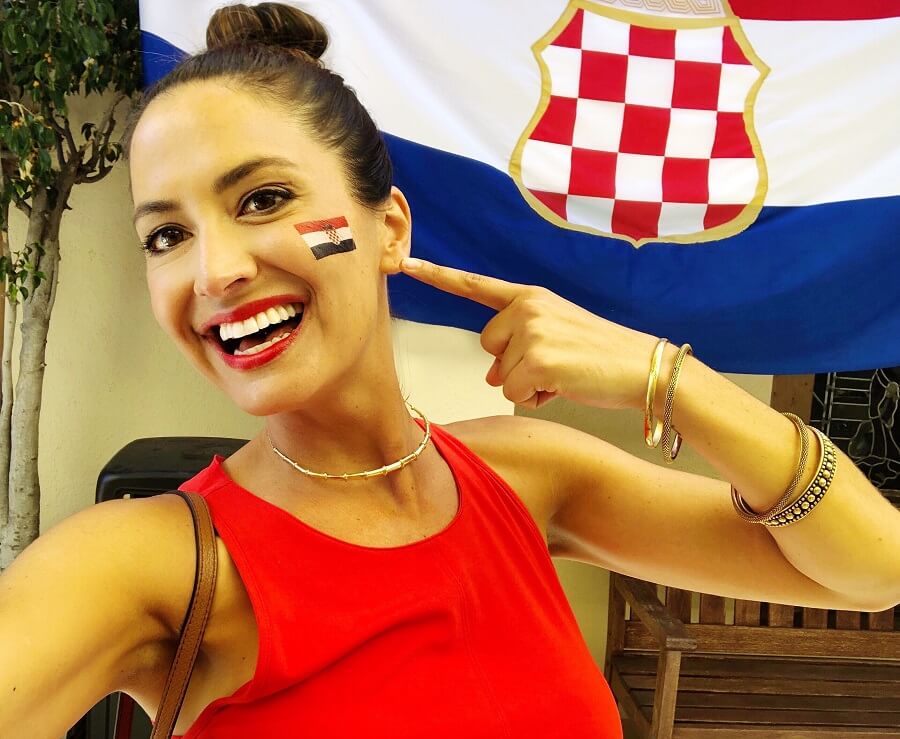
Annie is quick to credit her parents and especially her grandparents, Phil and Lena, for instilling determination and a love for Croatia in her! Her grandfather's family was from the village of Crnice near Medjugorje and her grandmother's Bradarich family was from Dubrovnik. They were the first couple to get married at St. Anthony's Croatian Catholic Church in Los Angeles. Her Boskovich family has been active in many Croatian community activities in the Los Angeles area and Annie has sung and performed at numerous Croatian events there and even this summer at a Croatian Fraternal Union event. Her grandfather won the Croatian National Association's Lifetime Achievement Award in 2008 for his extraordinary charity donations and the "Onion King of America" was respectfully honored for his lifelong generous giving to Croatian causes. Annie made several trips to Croatia and one with her grandparents Phil and Lena and their extended family. She proudly shares that this trip created the most beautiful lifelong family memories and they all marveled at the beauty of Dubrovnik, Split, Hvar and Korcula.

Annie has split her time between Nashville and Los Angeles the past few years and will be making her first full length album in the fall. Annie has decided to create her own music production company, Shero Entertainment, in pursuit of driving her destiny forward. She clearly pursues her music and songwriting with a relentless work ethic and commitment that should bode well for her new career plans.

Let me recommend that you google Annie Bosko and find her music on "You Tube" so you too can hear her beautiful rendition of the Beach Boys hit, "God Only Knows" and you can find her duetting with Andrea Bocelli and Josh Groban. Also, be sure to check out her original songs such as “Crooked Halo” and “Fighter”.
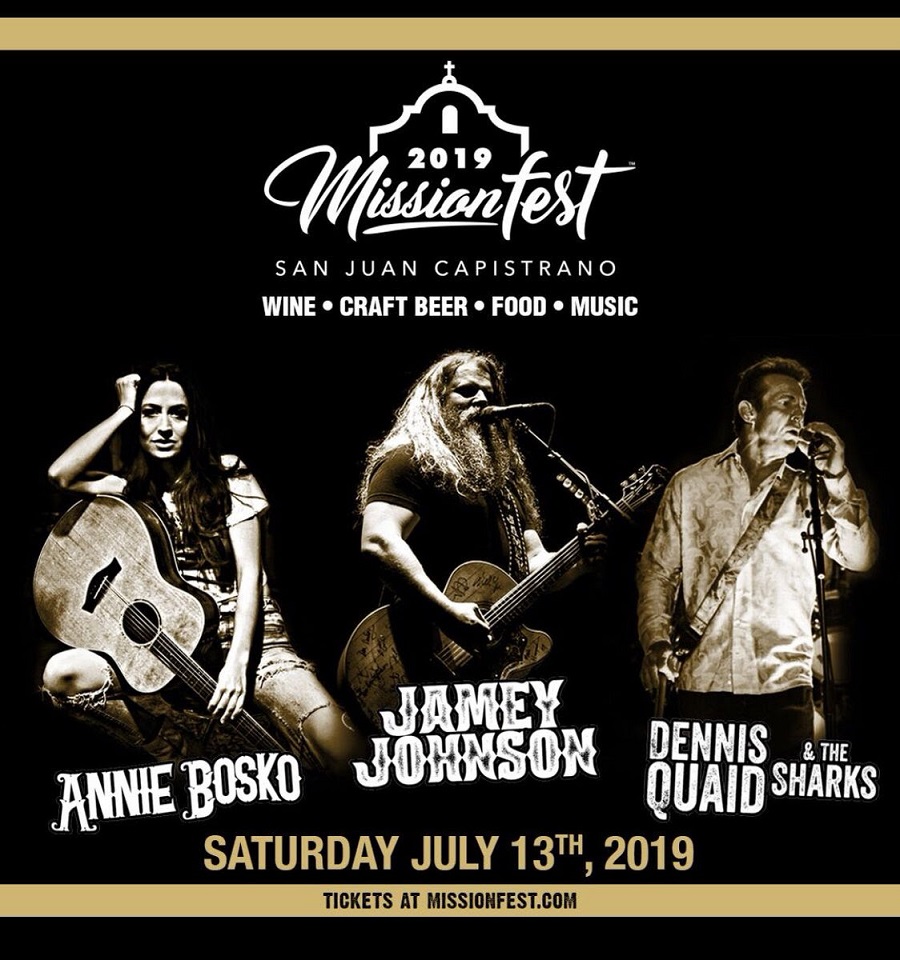
Lastly, Croatians in Southern California take note that Annie will perform at Missionfest in San Juan Capistrano, California this Saturday, July 13th at 2:30pm. The line-up includes Dennis Quad and The Sharks, Eric Paslay and Jamey Johnson. It will be a great music event and another opportunity to see this talented Croatian American singer onstage!
More diaspora news can be found in our dedicated section.
Meet General Ante Gotovina at His Tuna Farm at Diaspora Conference G2.5
July 11, 2019 - Planning for the 5th G2 Croatian diaspora conference is in its advanced stages. One of the undoubted highlights is the chance to meet General Ante Gotovina.
Connections between Croatia and its diaspora are strengthing. One of the pillars bringing entrepreneurs from the Homeland and Croatian communities abroad is the G2 conference, which will take part for the fifth year later this year:
This year, the fifth Meeting G2 conference will be held in November. Please mark this down in your calendars from the 4th to the 6th of November and make the most of the time to investigate business opportunities and potential business partners. Last year, more than 200 participants attended the event, including more than 70 representatives of Croatian owned businesses from all around the world. This year, we expect an even larger turnout to attend the event to voice their opinions on the goals of the Conference, build a great atmosphere and create a story that connects all Croatians around the world. We will brief you about the conference program and early bird prices.
The schedule is still being finalised, and we will publish it as soon as we get it, but here is an interesting special offer to add a little spice to G2.5:
Don't miss the opportunity to meet our celebrated Croatian Army General Ante Gotovina at this year's Meeting G2 Conference. Gen. Gotovina will host participants of the conference starting 6th November 2019 at his company Pelagos net farma d.o.o. in Zadar.
A few years ago, Gen. Gotovina founded a company harvesting wild tuna, breeding them under controlled conditions in underwater cages, and his business has been booming. All interested will have the opportunity to watch live production operations and meet the celebrated general, who is today a very successful entrepreneur.
Get an Early Bird 40% discount if you register before 15th of July for this year's conference. For more information, see the Fee Discount article.
Tickets are limited, so please indicate your interest in the trip to see Gen. Gotovina in your application. For online registration, visit online discount.
To follow the latest from the Croatian diaspora, follow the dedicated TCN section.
Grabar-Kitarović Visits Croats at ETH Zurich Technological University
ZAGREB, July 9, 2019 - On the second day of her visit to Switzerland, Croatian President Kolinda Grabar-Kitarović on Tuesday visited the ETH Zurich Technological University and laid wreaths at a plaque dedicated to two Croatian Nobel Prize winners, Vladimir Prelog and Lavoslav Ružička, and then met with Croatian students and researchers at that institution.
ETH Vice President for Research and Corporate Relations Prof. Detlef Guenther accompanied Grabar-Kitarović during the wreath laying ceremony.
Ružička won the Nobel Prize in Chemistry in 1939 and today ETH has an award named after Ružička. Prelog was the Nobel Prize laureate in Chemistry in 1975.
ETH is an institution that boasts 21 Nobel Prize winners and currently there are about seventy students studying there.
The president then met with Croatian students at the university. Two Croatian professors and researchers, Nenad Ban and Srđan Čapkun, gave lectures and spoke about their work and education.
Čapkun presented a paper on security systems, while Ban spoke about his research into ribosomes and how he came to Zurich and, he said, one of the best universities in the world, adding that Zurich was similar to Zagreb as a central European city.
The president underscored that Croatia has huge scientific potential which needs to be worked on from the earliest age. She said that it is necessary to fight against nepotism and corruption in Croatian science and to promote the reform in the education system.
She called on Croatian students to return to the homeland because they are "particularly needed."
Later the president will hold a lecture at the Europa Institute of the University of Zurich on the topic "Europe - challenges in an increasingly complex world". She will conclude her visit by meeting with representatives of the Swiss business sector and the Chamber of Commerce Switzerland - Central Europe.
More news about relations between Croatia and Switzerland can be found in the Politics section.
President Meets with Croatian Diaspora in Switzerland
ZAGREB, July 9, 2019 - President Kolinda Grabar-Kitarović met with Croatian expatriates in Switzerland on Monday, saying Croats had convinced foreigners of how beautiful their country was but that not the world should be convinced, first and foremost expatriates, of how good Croatia was to live in.
"You have always been there for us, also when it was the hardest for Croatia, and I thank you for that," she told them at the residence of the Croatian ambassador to Switzerland in Muri bei Bern.
The meeting with Croatian expatriates was organised on the occasion of Croatia's Statehood Day. Earlier in the day, the president met with the heads of the Croatian Catholic Mission in Switzerland.
"Croatian emigrants, especially in the Homeland War, provided not just material aid but also moral and political support, which was necessary so that foreign countries would recognise us as a state with the right to exist," the president said.
"We have convinced foreigners of how beautiful Croatia is. Now we have to convince the world, first and foremost our emigrants, of how good Croatia is to live in. My branding project, as well as the demography project, is aimed at making Croatia a country befitting man," she added.
One of the demography measures is to strengthen ties with expatriates and facilitate their contact with the homeland, "with their return being the goal," the president said.
She reiterated that "Croatia can stand side by side with the most developed countries and there is no reason why it shouldn't be so."
"We have all the resources. We are much richer in terms of resources than many countries, including Switzerland... We just need organisation, a work ethic, mutual respect, faith in the state, family, community, in God and all the values which make a society noble," the president said.
More diaspora news can be found in the dedicated section.
TV Series on Croatian Community in Chile Presented
ZAGREB, June 9, 2019 - A TV series - The Croatian Community in Chile - by Mariana Campera and Damian Bazan Mamić, produced by the HRT national broadcaster, was presented at the Croatian Heritage Foundation (HMI) in Zagreb last Thursday.
The series consists of five documentary episodes with interesting stories about the life of Croatian emigrants. It is estimated that about 200,000 Croatian emigrants and their descendants live in Chile.
Campera and Mamić are reporters for the HRT's Spanish-language programme for Croats outside Croatia.
The first episode - "To the End of the World and Back" - deals with the history of emigration of Croats to South America, which started in the second half of the 19th century, while the second episode, "Searching for white gold", speaks about the first Croats to settle in northern Chile, attracted by the search for sodium nitrate (used as fertiliser at the time) in the Atacama Desert.
"A Croatian City at the End of the World" is the title of the third episode, which deals with Croats in Tierra del Fuego, who arrived there in search of gold. Today they live mostly in Punta Arenas, a community which has the highest percentage of Croat population on the South American continent.
Croats in politics, culture, education, the church hierarchy and business circles is the topic of the fourth episode, while the fifth episode - "Chilean Writers of Croat Origin" - is dedicated to the Chilean Language Academy, which has 34 members, including six full and four corresponding members of Croat origin.
More diaspora news can be found in the dedicated section.
Croats in Serbia Want Larger Role in Decision-Making
ZAGREB, June 7, 2019 - The Croat minority in Vojvodina is satisfied with its treatment of the local authorities when it comes to education of Croats in Serbia, however, they request that they can have more representatives in institutions in proportion to the size of the Croat community, local Croat leader Jasna Vojnić said at a meeting with the Council of Europe Committee on Equality and Non-Discrimination in Novi Sad on Thursday.
The PACE committee convened in Novi Sad to analyse a state of affairs and the experiences of ethnic minorities in Vojvodina considering the exercise of minority rights.
Addressing the meeting, Vojnić, who is the president of the Croatian National Council in Serbia, said that "Croats are faced with a series of obstacles such as non-inclusion in decision-making processes, a lack of integration in the social and political system, marginalisation in the society and high ethnic distance".
She also called for putting an end to the practise of renaming of streets in Vojvodina cities and towns which have been until recently named after Croatian great men.
Vojnić proposed the registration of the intangible cultural heritage of the ethnic Croats.
Apart from Vojnić, a representative of the local Hungarian minority also addressed that Committee of the Parliamentary Assembly of the Council of Europe (PACE).
More news about Croats in Serbia can be found in the Politics section.
Office for Croats Abroad Helping Diaspora in Venezuela
ZAGREB, June 5, 2019 - State-Secretary in the Central State Office for Croats Abroad, Zvonko Milas, on Wednesday informed that the office was actively helping the Croat community in Venezuela, which is in a difficult social, economic and security situation.
There are just under 5,000 Croats in that community and together with humanitarian organisations, the UN and anyone who can, the Office for Croats Abroad is helping in preserving that community, Milas said, submitting a report to parliament on the office's activities in 2017.
The state should have certain "magnets" that will attract some people who are having a hard time living there, MP Ante Babić (HDZ) said.
Milas informed that in 2017 the office had granted 1.3 million kuna for projects submitted by the Croat communities in South America and South Africa.
He boasted that funds to assist Croat minorities in 12 European countries had increased by 50% compared to 2016 and that Croatia has agreements on the protection of ethnic minority rights with four countries: Hungary, Serbia, North Macedonia and Montenegro.
Milas underscored however that since 1991, Croats in Slovenia do not have any status. "That means that they aren't treated as a national minority or linguistic minority," Milas said adding that a commission was established in 2017 aimed at resolving the status of the Croat community in that country.
He said the office focused mainly on assisting the Croat people in Bosnia and Herzegovina and that funds had increased by 20% in 2017 compared to 2016, financing 88 projects.
The office granted 500 scholarships in the 2016/2017 academic year for Croat students and secured additional funding for the University in Mostar and the national theatre in that city. An agreement with the University of Zagreb signed in 2017 provided for a special enrolment quota for Croat students from abroad and launched an online Croatian language course.
More diaspora news can be found in the Politics section.
Connect the Diaspora: G2 Meeting Next Generation 5th Edition in Zagreb in November
June 3, 2019 - Momentum is building in the relationship between the Croatian diaspora and the entrepreneurs in Croatia, as G2, Meeting Next Generation, returns for its 5th edition later this year.
One of the more interesting dynamics in Croatia in recent times has been the attempt to engage the business potential of Croatia's rich and influential diaspora with entrepreneurs in the Homeland. More than 30 billion euro has been sent to Croatia from the diaspora since 1991 and last year diaspora remittances exceeded foreign investment into the country.
The recent 2nd International Conference on Diaspora Tourism in Split was an unqualified success, and the many speakers talking about their successful return to Croatia filled the room with positivity and great connections. As a foreign fly on the wall of the conference, here were my impressions on a fascinating couple of days in Split.
It is, however, not the only diaspora conference in the Croatian calendar...
Last November, I attended G2.4, Meeting Second Generation, a business-oriented conference connecting opportunities between the diaspora and local entrepreneurs. The G2 was in its fourth year, and I was impressed both at the positivity and also the opportunities that seemed to be there. The relationship between the diaspora and the Homeland is growing, and - just as in Split - it was a pleasure to observe progress from distance.
This year's G2 conference will take place one more in Zagreb, from November 4-6, as has been announced on the official G2 website:
This year, the fifth Meeting G2 conference will be held in November. Please mark this down in your calendars from the 4th to the 6th of November and make the most of the time to investigate business opportunities and potential business partners. Last year, more than 200 participants attended the event, including more than 70 representatives of Croatian owned businesses from all around the world. This year, we expect an even larger turnout to attend the event to voice their opinions on the goals of the Conference, build a great atmosphere and create a story that connects all Croatians around the world. We will brief you about the conference program and early bird prices.
WHO ARE WE?
A multidisciplinary team of Croatians both in our Homeland and abroad whose main goal is to connect business people from Croatia and its diáspora in order to enhance the diaspora’s investment in the Homeland.
WHY US?
Because we know that Croatia has enormous potential which is still to be developed with its already fantastic quality of life and because we believe that Croatia’s population is 8 million people and not just 4.5!
OUR MISSION
To connect Croatians abroad with people and business opportunities in Croatia via practical online and offline knowledge-sharing, matchmaking and networking forums.
OUR VISION
A future where possibilities, opportunities and dreams of doing business with or in the homeland will drive a new era of Croatian economic development, growth and productivity.
To learn more about the 2019 G2 conference, visit the official website.
Successful Diaspora Returnee Stories: Domagoj Šain, Data Domain, Korcula
The 2nd International Conference on Diaspora Tourism took place in Split on May 17, 2019. TCN meets some of the returning diaspora who have made a success of life in Croatia. Next up, Domagoj Šain, who swapped life in Toronto to start his own business on the island of Korcula.
1. You are from Canada, returned to Croatia, something that many diaspora dream of doing. Tell us briefly about your journey.
I was born in Dubrovnik and when I was 10 years old living on the island of Korcula we left just before the war broke out, in 1989. As my mother was born in Toronto, Canada and my grandparents were there so my parents decided to move to Toronto at the time. In my stay in Toronto we moved all over but always were close to our Croatian community. I played soccer with my younger brother Frano for many years for our Toronto Croatia soccer club and as we got older we played professionally for the club in the Canadian soccer league.
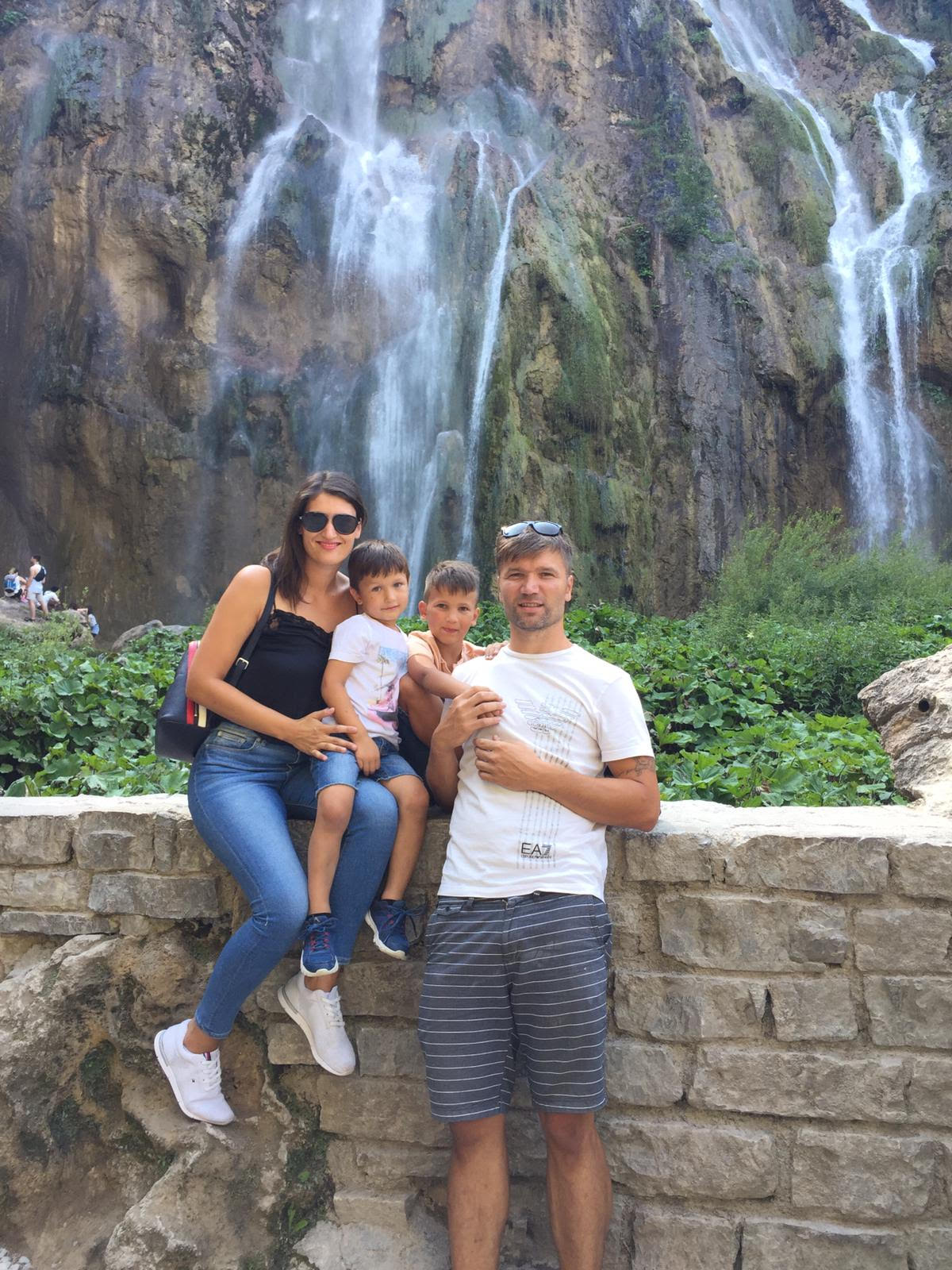
During my time at Toronto Croatia soccer club, I was the Captain and we won a couple of Canadian soccer league championships and received some trophies along the way. I completed my education at Seneca at York for Computer programming Database Specialist and began working in the field a couple of years after as I was unable to find the job in my field at the time. The problem was that in our Croatian community most were in the construction industry and there is lonely me in the IT industry.
This was until I met Mario Komparic a man that helped me get my first job as an Oracle DBA. Mario told me that it was great that I completed my education but now I needed to get Oracle certifications to get hired so that is what I did. I worked as an Oracle DBA for some of the best companies in Canada at the time like Research in Motion ( Blackberry ) in Waterloo. I enjoyed my time in Toronto very much but there was always something missing and that was Croatian and my Korcula. My dream and plan was always to come back to Korcula so I started working on that plan. I did not want to be on the road 4 hr a day Monday to Friday any longer as it was draining me out. Did not want to be stuck in traffic and dealing with the cold winters and only 1-2 week vacations. I began looking for work in Croatia in the IT filed but all the work was in Zagreb.
Zagreb is a beautiful city but there was no point of me leaving Toronto and heading to Zagreb at the time as I wanted to be closer to the Adriatic sea and the islands. I finally got a lucky break and got an interview at a telecom company in Split Croatia at H1 Telekom. So during Christmas time I went to Croatia for a visit and went for the interview and got the job on the spot. Came back to Toronto said goodbye to all my friends and family and left Toronto for good. It was not that hard leaving Toronto as I met my beautiful future wife Ivana and I knew she was waiting for me in Croatia. After working in Split for a couple of years my dreams came true and I opened up my own company Data Domain d.o.o where we provide remote Oracle Database service from our central office on the island of Korcula.
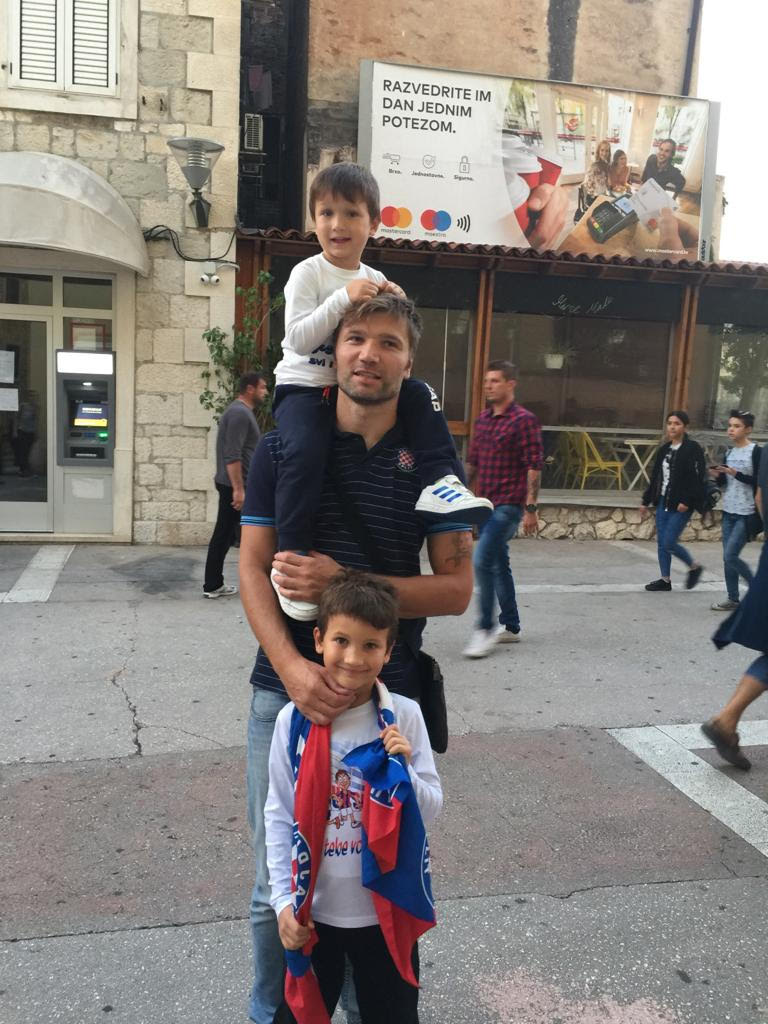
2. Looking back, what were your hopes, expectations and fears about moving to Croatia?
My only hope in my decision to return was to go to the beautiful country I left as a child of 10 years, with numerous opportunities I saw every year when I was there. I did not think about the possibility of corruption, about the dysfunctionality of state apparatus, I did not have fears of the health system, tax advantages or administrative illogicality. I did not have any fears, I did not want to have them because it might have affected my decision. If I went back 10 years ago I would have done the same thing right now as I just wanted to leave Canada and its hectic lifestyle. So leaving a city of more than 2.5 million to a village of 5 hundred is a pretty crazy leap for a 30-year-old at the time.
Looking back I was so excited that my extended family and Ivana was waiting for me. Also working for the one of the best IT companies at the time RIM with a great salary I took a job for a lot less in Split where I had to rent out place. I was just focused and was working on my Croatian dream to come true to live on my island of Korčula, to do the job I've been doing and that I love. The most important thing for me is a peaceful family life where my kids can safely play in the local park and in the front of the house, which I have today.
3. How supportive was your Croatian community back home at the time?
Zavalatica is a small settlement on the island of Korcula, where everybody knows each other. Through constant summer holidays, I have established friendships with people living there and my childhood friends. I started playing soccer for the local team in Smokvica “NK Jadran” and made some great friends along the way. Most importantly, on the island is my extended family and Ivana who could hardly wait to come back. Both of my grandparents were alive at the time and I was so happy that I spent the next couple of years around them. I was very close with both of them and it meant so much to me. One year after my return to Croatia, my parents and sister came along which made things much easier.
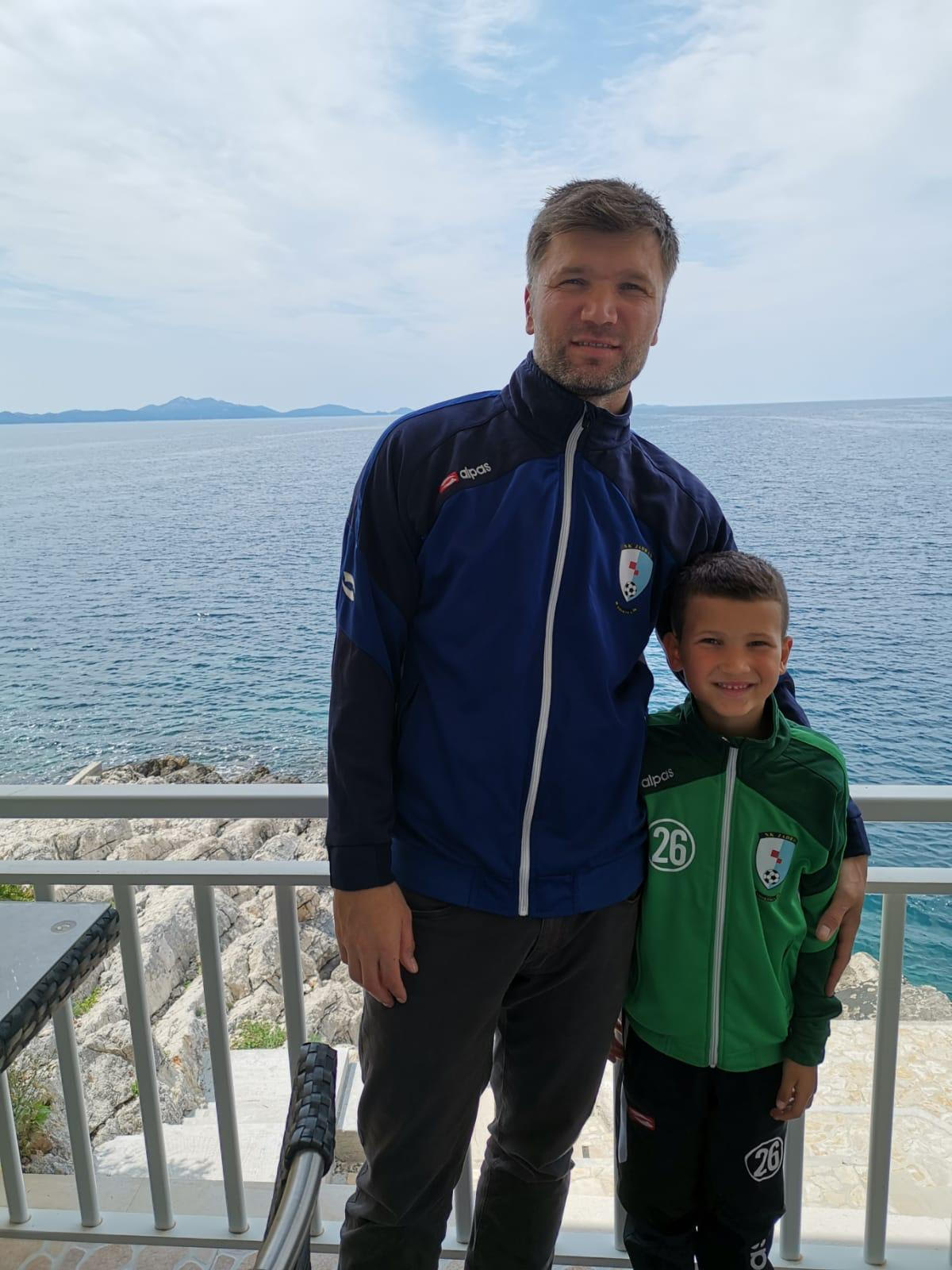
4. Many diaspora think of returning but few do. In truth, there is little information out there about real-life stories and help/info about the process. What advice do you have for those who are thinking about making the move?
Every new beginning is difficult but also exciting. It takes months to get used to the functioning of state apparatus as we from diaspora are used to something else. It took a little longer to get all the required paperwork as Croatia is a lot more laid back and everything is done at a lot slower pace then Canada so you will have to be prepared for that. My advice to those who want to succeed in Croatia is to work hard and take advantage of past experiences and work attitude you gained abroad. Bring that different mindset and look towards business opportunities as there are plenty especially in the tourism industry. Not to compare the state system with the state system you come from.
Follow your dreams, believe in what you've come to Croatia for. My dream was to come to the island of Korcula and open up my own IT company and provide remote Database services to clients all over the world. My dream came true and it was a lot of work and commitment and what helped me the most is the professionalism that I learned while working in Toronto. Do not criticize the country like most do but work for the better in the community and in private life. The opportunities for those who want to come are great you just have to come with a different mindset and a different vision at looking at things here.
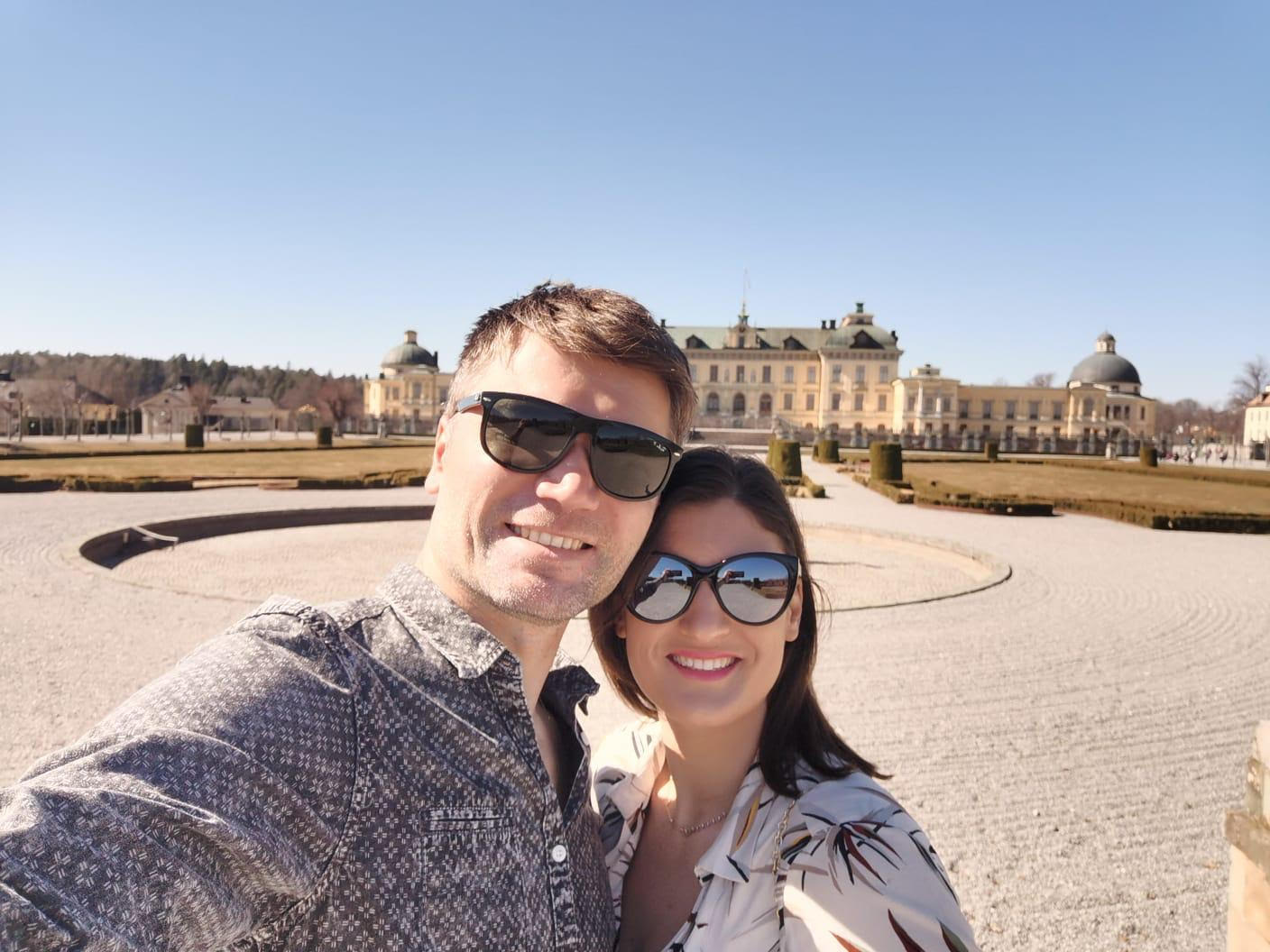
5. How were you perceived in Split as diaspora moving back - was the welcome warm?
There are still people that ask me why you came back, didn’t you have a better life in Canada. Why did you come when people from Croatia are leaving? I know that I made the right move for myself and my future family. Life in Canada is neither better nor lighter. What the media is presenting today about ideal life and "overnight success" in diaspora is far from the truth. I lived abroad for 20 years and I know how people live their life there and here. Yet most people are delighted with my life story. By first coming to Split then Korčula, I knew there were people around me who I could count on and are very fortunate for that.

6. Through a lot of hard work, you have been very successful, while many foreigners have given up and left Croatia. What are the keys to success in doing business in Croatia in your opinion?
My key to success in Croatia is the life experiences and professional work attitude that I have learned abroad and have incorporated it in my work here. My clients know that I am always available especially when I work in an industry where we provide 24/7 services. Data Domain d.o.o is one of the first companies in Croatia that provides such services and doing it from an island is truly amazing. Many of the clients we have I have never met face to face as we mainly communicate from email or Skype. I could have opened my company anywhere in the world where there is internet but I decided that there is no better place for me or my family than here. It is also very important to keep up with the latest certifications to be competitive and keep up with the high changing IT trends. Also since Croatia is part of the EU we have started to take advantage of EU funds to grow and add different services into our portfolio.
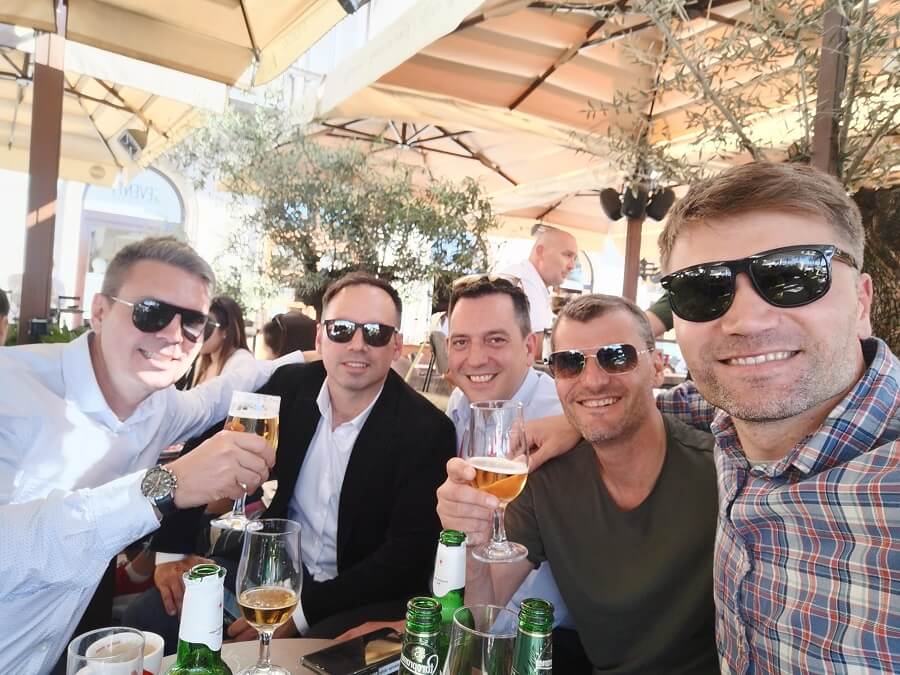
7. What is the diaspora community like in Dalmatia and how integrated is it with locals?
The diaspora returnees are were very well integrated with local people here on Korčula. Although there is no organized diaspora community on the island, but all somehow recognize each other, shared similar stories, socialize privately and want to achieve something positive for the community. I personally have many more diaspora friends living in Dubrovnik, Split and Zagreb. And if you ask me what that diaspora community looks like, I will say a community of outstanding, business-minded people, that all love Croatia and its lifestyle, who are not burdened with the negative we often see in people who are there all their lives.
8. And finally, a word on this conference. How was it for you, and what were the main take-home points?
I am very proud that I was invited and was on one of the panels on the Diaspora conference. Mr. Dan Maček and the organizers did a great job and I can’t wait for the next one. Hopefully next year the conference can during July/August so there will be more diaspora on hand for the conference. I hope we have helped some diaspora make the same move we all did and that our stories will make their move easier. Our diaspora needs to understand that it is a lot easier now as there are lots of groups out there the can help in the transition.
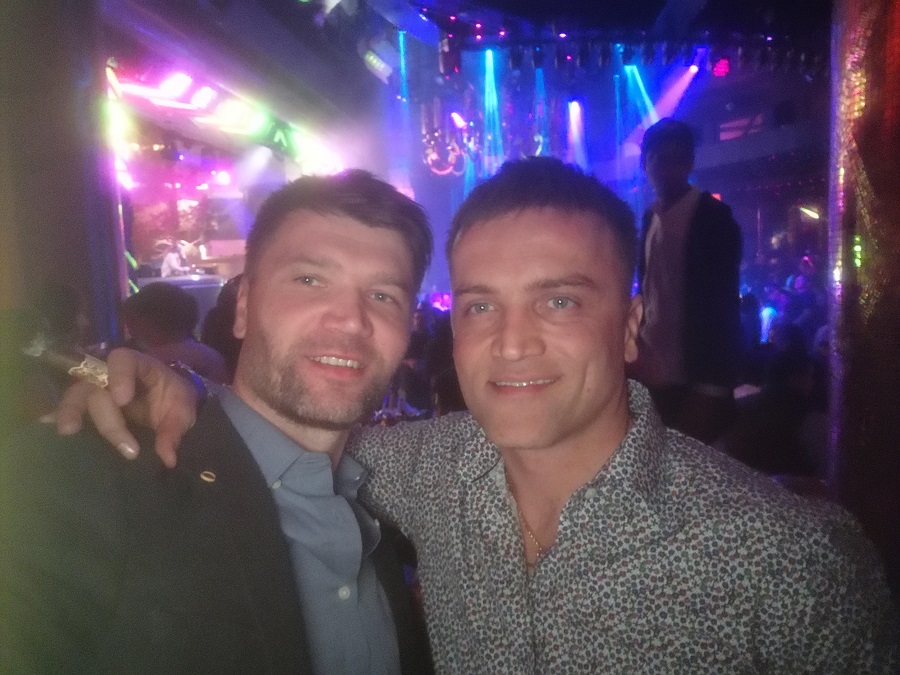
At the conference I met lots of different and interesting people in different industries not just tourism which was nice for me as I am not also just focus on that industry. But tourism is an industry that I will be focusing more on in the future as the potential is great especially on the island of Korčula as it is still very untouched.
You can learn more about Domagoj's company, Data Domain on the official website, or connect with him on LinkedIN.
For more on the Croatian diaspora, check out the TCN dedicated section.


